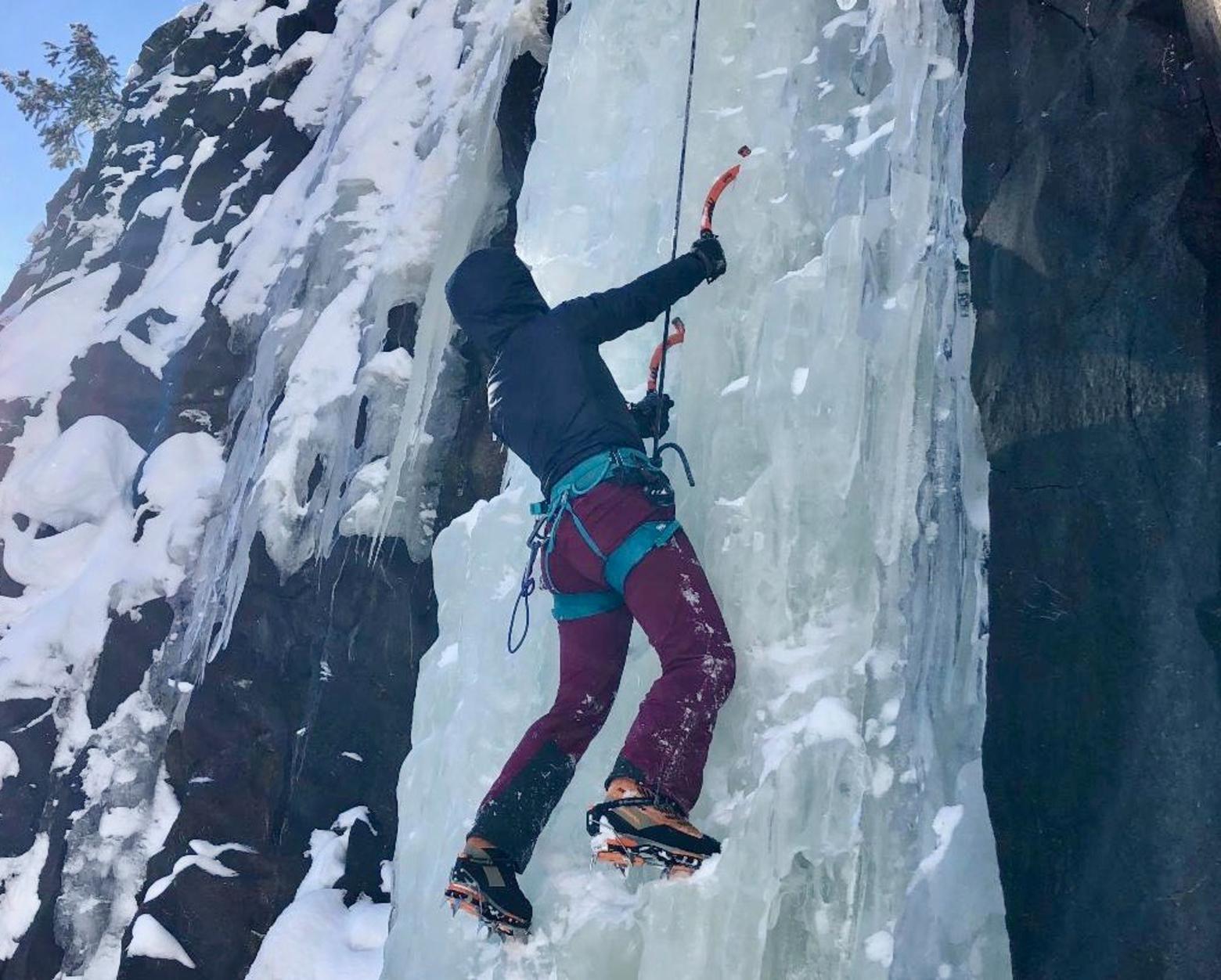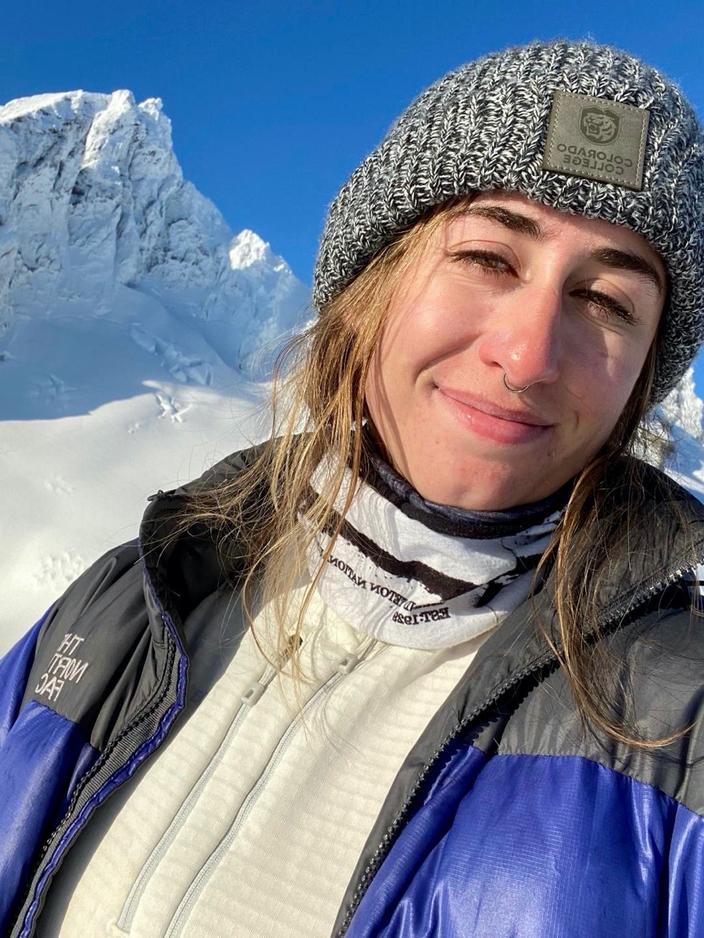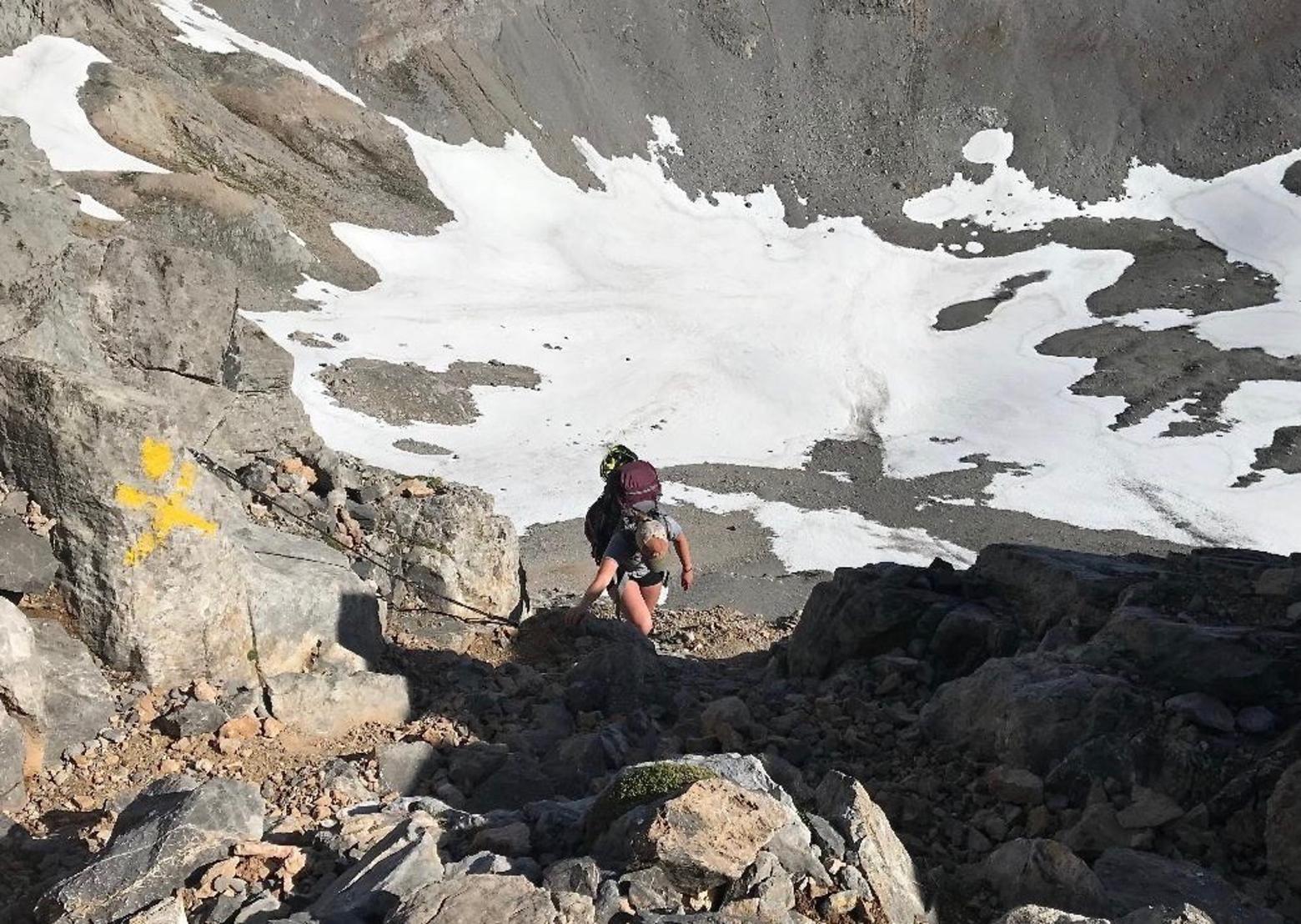Back to StoriesA Young Journalist Finds Boot Camp In America's Wildest Ecosystem
LOREA ZABALETA: The first thing that comes to mind is the outdoors access. There are few places in this country where you can live in a town/city and also be 20 minutes from skiing, and maybe 30 minutes from climbing and little more to ice-climbing. It definitely spoiled me. Along those lines, just the sheer beauty of the ecosystem and the wildlife I was able to see throughout my childhood. It is truly something special. I appreciate it even more now that I’ve lived in other places. Sometimes I’ll take a look around and just be awe-struck that I get to live in such a wonderful place.
MOJO You're going to be our summer intern. What intrigues you about journalism?
MOJO: When you look at the Greater Yellowstone Ecosystem, what's a part of it where you'd like to be sent on assignment?
June 1, 2020
A Young Journalist Finds Boot Camp In America's Wildest Ecosystem Lorea Zabaleta grew up hearing about the conservation issues of Greater Yellowstone. Now, as MoJo's summer college intern, she's writing about them
Mountain towns with walls of public lands encircling them tend to attract intrepid people. Some are drawn to high-energy adventure while others are more mindful of their spiritual dimensions. Lorea Zabaleta grew up in a firmament of passionate discussions as her dad, a world class climber, and her mom, a respected conservationist and local school board trustee, imparted their own sense of reverence for nature.
Zabaleta, who joins Mountain Journal as our summer writing intern, brings a Greater Yellowstone perspective to thinking about not only the intersection between people and the environment but pondering what the obligation of stewardship means and how it translates to people of different cultures and generations. She will be exploring that terrain in the months ahead.
Lorea, 20, just completed her freshman year—albeit remotely—at Colorado College where she is studying International Political Economy and Journalism. Born and raised in Bozeman, she spent a lot of time traveling, attending boarding school in New Hampshire for three years and living in Spain for her senior year of high school.
"I try to spend as much time as possible outside either climbing, skiing, or hiking but sometimes I get lazy and just want to hang out with my dog and read," she says. Mountain Journal welcomes Lorea aboard and we know you'll enjoy the stories she writes during the next few months.
To learn more about her, read our Q and A below.
MOUNTAIN JOURNAL. You hail from Bozeman, largest city of the Greater Yellowstone Ecosystem. What are the things you appreciate about being from here?
LOREA ZABALETA: The first thing that comes to mind is the outdoors access. There are few places in this country where you can live in a town/city and also be 20 minutes from skiing, and maybe 30 minutes from climbing and little more to ice-climbing. It definitely spoiled me. Along those lines, just the sheer beauty of the ecosystem and the wildlife I was able to see throughout my childhood. It is truly something special. I appreciate it even more now that I’ve lived in other places. Sometimes I’ll take a look around and just be awe-struck that I get to live in such a wonderful place.
MOJO: Your mom has been involved in conservation and environmental law and your dad is a talented European-born mountaineer. How did they shape your perspective and what did you absorb from being exposed to their passions?
ZABALETA: For as long as I can remember dinner table discussions have involved conservation. Some of my earliest opinions involved the reintroduction of wolves into Yellowstone, which while it occurred before I was born was still a controversial environmental topic in my youth, snowmobiles in the park, and drilling for coalbed methane in Bridger Canyon.
Although I was probably too young to understand exactly what was happening with many of these
issues at the time, they stuck with me. Additionally, while not always, but sometimes, directly related to conservation or environmental law, my mom has also been incredibly involved in local politics including the school system. Her determination, competence, and ability to get people to listen to her has inspired me to not give up and to not be afraid of people disliking me for standing up for what I believe in.
As for my dad, mountaineering has always been less about "conquering” the mountains but rather appreciating wildness, beauty and embracing the humility and feeling of insignificance that comes from being a small human surrounded by big features. From him, I’ve developed not only a passion for outdoor recreation such as hiking, climbing—rock and ice— and some light mountaineering but also respect and a deep appreciation for the natural world and all its inhabitants.
My dad also shows me that there is an intersection of the outdoors and justice—climate and otherwise— through his own history as an activist in Spain and his outspoken opinions in the house on topics of environmentalism and human rights.
MOJO You're going to be our summer intern. What intrigues you about journalism?
ZABALETA: Since the third grade, I’ve wanted to be a writer. Initially, I wanted to write fantasy or fiction novels and while I haven’t necessarily given up on that, in recent years journalism has held my
interest more. I definitely have a lot of opinions and most effectively express myself through writing. I found a voice for myself my junior year of high school on the school newspaper, often writing about politics.
"I find it cathartic to do research on topics I care about and even get opinions I don’t necessarily agree with in order to understand and present the whole picture." —Lorea Zabaleta
I find it cathartic to do research on topics I care about and even get opinions I don’t necessarily agree with in order to understand and present the whole picture.
After taking a journalism class this winter and joining Colorado College’s independent paper as a writer, this interest was solidified. I think there’s just something magical about how journalism when done right is truly an avenue for holding power structures accountable and supporting democracies and justice. When I think of the phrase “the pen is mightier than the sword,” it’s journalism that first comes to mind.
MOJO: You've just completed your freshman year at Colorado College and what a strange last term it must have been. How do you feel about how all of this has played out and among your friends is there any general deductions you can make about how its affecting all of you?
ZABALETA: I obviously cannot speak for all of my friends, much less all of my friends, but I do think there is a complicated feeling that something has been taken from us mixed with the guilt of knowing that we could have it far worse. Amongst first years, I think a lot of us were just getting into our groove, solidified in our freshmen friendships and finally branching out and finding our place.
There’s definitely feelings of uncertainty and hopelessness and I think some level of acceptance of our current situation and trying to make the best of it.
MOJO: When you look at the Greater Yellowstone Ecosystem, what's a part of it where you'd like to be sent on assignment?
ZABALETA: I truly love all of the Greater Yellowstone Ecosystem and perhaps did not appreciate how large it is until I had to narrow down a "favorite" area. After a little bit of thought, I think I would love to be sent to the Beartooths or Tetons areas simply because of my love for the mountains. I definitely would not complain about being sent anywhere in this beautiful area, however, nor about learning more about this place I call home.
MOJO: Who and what inspires you most these days. Please elaborate on it.
MOJO: Who and what inspires you most these days. Please elaborate on it.
ZABALETA: Honestly? Journalists, especially reporters in countries or areas not friendly to the press. I don’t know if I’ll ever have the courage for it, but I have so much respect for people who put their life on the line to get the truth to people.
Along those lines, anyone who puts their bodily safety on the line for justice has my respect. Additionally, as I’ve become more and more aware and worried about climate change I’ve also become inspired by the activists around the world on this issue. Particularly, indigenous peoples who for thousands of years have been stewards of the land and now often go unheard and unappreciated for their efforts.




